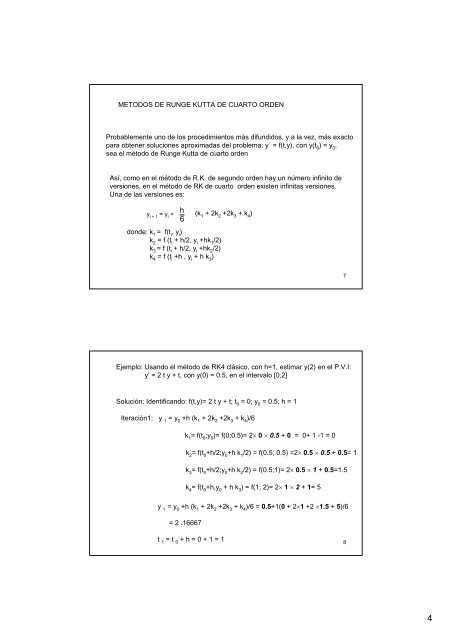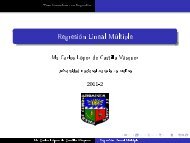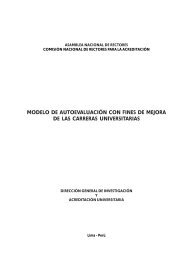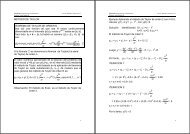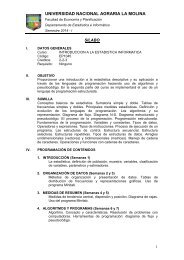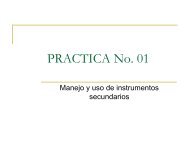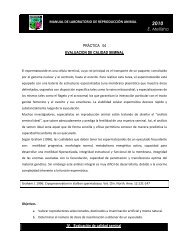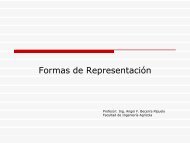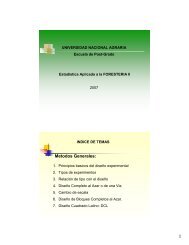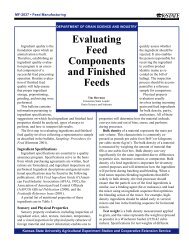You also want an ePaper? Increase the reach of your titles
YUMPU automatically turns print PDFs into web optimized ePapers that Google loves.
<strong>METODOS</strong> <strong>DE</strong> <strong>RUNGE</strong> <strong>KUTTA</strong> <strong>DE</strong> CUARTO OR<strong>DE</strong>NProbablemente uno de los procedimientos más difundidos, y a la vez, más exactopara obtener soluciones aproximadas del problema: y´ = f(t,y), con y(t 0) = y 0,sea el método de Runge Kutta de cuarto ordenAsí, como en el método de R.K. de segundo orden hay un número infinito deversiones, en el método de RK de cuarto orden existen infinitas versiones.Una de las versiones es:y i+ 1= y i+6h (k 1+ 2k 2+2k 3+ k 4)donde: k 1= f(t i, y i)k 2= f (t i+ h/2, y i+hk 1/2)k 3= f (t i+ h/2, y i+hk 2/2)k 4= f (t i+h , y i+ h k 3)7Ejemplo: Usando el método de RK4 clásico, con h=1, estimar y(2) en el P.V.I:y’ = 2 t y + t, con y(0) = 0.5, en el intervalo [0,2]Solución: Identificando: f(t,y)= 2 t y + t; t 0= 0; y 0= 0.5; h = 1Iteración1: y 1= y 0+h (k 1+ 2k 2+2k 3+ k 4)/6k 1= f(t 0;y 0)= f(0;0.5)= 2 0 0.5 + 0 = 0+ 1 -1 = 0k 2= f(t 0+h/2;y 0+h k 1/2) = f(0.5; 0.5) =2 0.5 0.5 + 0.5= 1k 3= f(t 0+h/2;y 0+h k 2/2) = f(0.5;1)= 2 0.5 1 + 0.5=1.5k 4= f(t 0+h,y 0+ h k 3) = f(1; 2)= 2 1 2 + 1= 5y 1= y 0+h (k 1+ 2k 2+2k 3+ k 4)/6 = 0.5+1(0 + 21 +2 1.5 + 5)/6= 2 .16667t 1= t 0+ h = 0 + 1 = 184


